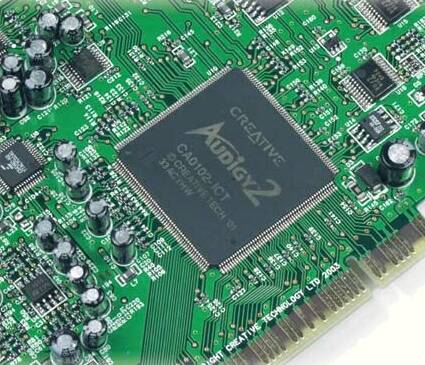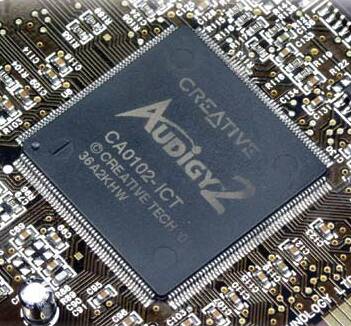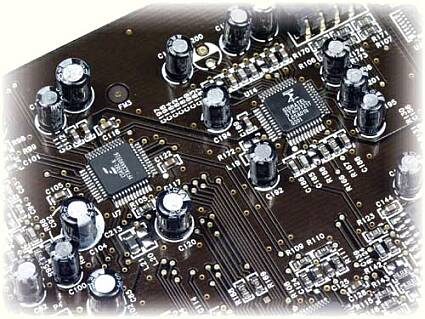DTS and 7.1: Creative Audigy 2 Platinum Pro
Get Tom's Hardware's best news and in-depth reviews, straight to your inbox.
You are now subscribed
Your newsletter sign-up was successful
A Familiar Tune But An Improved Melody
The Audigy 2 ZS uses the same old Audigy 2 circuit, now so well-known, a DSP audio processor operating at 32 bits and at a frequency of 48 kHz. The reference is not identical here but this is just an upgrade. The circuit is associated with 24 bit converters that can operate at up to 192 kHz in play mode and can record at 24 bits and 96 kHz. You have to understand, however, that one is exclusive to the other. In other words, if the Audigy 2 can operate "direct-to-disk" at 24 bits/96 kHz, an audio stream such as this cannot be processed by the DSP. So there's no point in hoping to apply realtime effects using the card! Furthermore, 44.1 kHz is not always managed natively. That is one of the disadvantages of this type of card in comparison to the more professional models.
Unlike the Platinum EX that was restricted to digital on the PCI card, the Platinum ZS has an analog input on the same card and uses a STAC9721T Sigmatel circuit (18 bits/48 kHz) to do the conversion. This is not one of the most recent circuits... An S/PDIF input is added so it is possible to connect two audio sources to it (one digital, one analog) directly to the card. For the digital/analog conversion, it uses a Cirrus Logic CS4382 circuit (8 channels, 24 bits, 192 kHz). The housing is fitted with TI/BB PCM1804 analog/digital converters and a CS4382 digital/analog converter (stereo, 24 bit, 192 kHz) for the headset output. The base is thus identical to that of the Platinum EX using the same converters, but the conversion is performed differently and the better use of these converters enables Creative to claim a better signal/noise ratio of 108 dB in play mode, making it 2 dB better than the previous version.
As is normal for cards of this level, ASIO (Audio Streaming Input Output) drivers are supplied to work with music software. These drivers ensure a latency that can drop to very weak output, at least 10 ms, depending on the equipment used. The Platinum Pro benefits from ASIO 2 drivers that enable Direct Monitoring (direct signal path that does not need to pass through the application) as well as recording on six channels at 24 bits/96 kHz. On the other hand, direct management of 44.1 kHz remains impossible. The card still operates at 48 kHz. As in the previous range, the Audigy 2 ZS still uses ASIO 1 drivers that only operate at 16 bits/48 kHz.
Get Tom's Hardware's best news and in-depth reviews, straight to your inbox.
Current page: A Familiar Tune But An Improved Melody
Prev Page THX, A Quality Standard Next Page Test Configuration And Audio Measurement-
This rocks, I use it. but creative sucks. I have to use modified X-Fi drivers with modified XP software to get eberything to run, and the remote doesn't work at all. Found intelliremote, recommend it for this, or anything really, can customize the remote to control anything, not jst creative's playcentre thingy :-)Reply


